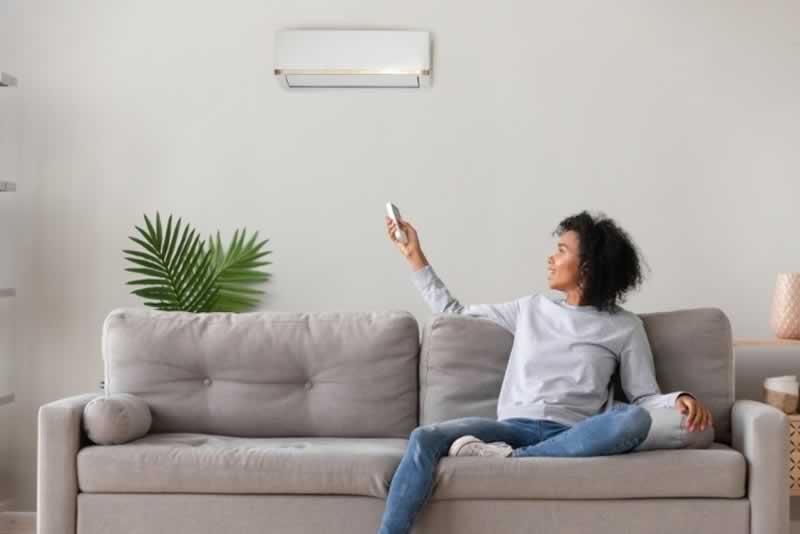Rarely do you think of air conditioning in January when you just want your rooms to be warm and cool, but the truth is that winter is a good time to start planning summer air conditioning. Earlier than you know, the heat will bother you and you will wish you had researched the most efficient air conditioners and made an informed choice for your space.
If you want to be ahead of the seasons, read some tips and tricks on choosing the right air conditioner to cool your room efficiently and effectively.
Consider the size of your room
Air conditioning that is too small cannot cool your room efficiently, just as a twin bed does not keep the entire king-size bed warm and cozy. Conversely, you don't want to buy an air conditioner that is too large, as this leads to inefficient operation, drastically increases the electricity bill and puts excessive strain on the air conditioner. As a rule of thumb, if you want to buy window, wall, or portable air conditioners, you'll need 20 BTU for each square foot of living space. A 6,000 BTU unit is therefore required for a 300 square foot room. Large rooms with an open concept are not efficiently cooled by a single unit. You should be ready to equip your home with a complete HVAC system or one unit for each closed room. In this case, you still want to look for the Goldilocks air conditioner, but you are working with the total area of your house and not just one room.
Take into account the functions of your room
There are some functions that affect the rule of thumb estimate for the size of the air conditioner needed to cool a room. These include:
- Heavy shadow, If your room has no windows or is never exposed to direct sunlight, reduce the estimate by 10 percent.
- Direct sun, Uniform, bright light warms your room above average. Therefore, increase your estimate by 10 percent if your room is exposed to direct sunlight.
- High occupancy, People and pets produce body heat that increases the temperature of a room. If there are two or more people in the room at all times, add 600 BTU per person.
- kitchen appliances, Ovens, hobs, stovetops, kettles, and other devices that make printheads should increase your capacity by at least 4,000 BTUs.

There are a few other concerns that you should add when considering installing an HVAC system in your home. specifically:
- climate zone, In general, people in cooler parts of the world have less to worry about air conditioning than people who live in hot climates. If your summers are three digits, you may need a more robust unit.
- attic, Nowadays, houses are built with HVAC in mind, so there are loft areas where builders can run ducts to bring cool air to every corner of the house. If your house has high ceilings or attics, you can hide your wires. Otherwise, you may need to redesign it with an industrial flair or skip the HVAC and install several smaller units.
- Windows, Shade and sunlight also affect the air conditioning throughout the house. However, you should also consider the order of your windows and their style. Large windows to the west and north keep your home hotter than windows to the east or south.
Finally, you need to think about organizing your room so that you don't install your air conditioner in a room that disturbs the flow of traffic or the balance of furniture. It is often advisable to install wall units high so that they do not take up the space of furniture or works of art. Since you can control new devices with a remote control, placing them out of range shouldn't be a problem. Window and portable units should have the same considerations. If you don't want the device to obscure the beautiful view or become a stumbling block, place it accordingly.
Consider your budget
After all, it should go without saying that larger units are more expensive than smaller ones, and that air conditioners with more functions – such as intelligent connectivity or elegant design – also cost more. It may not be economical for you to buy air conditioning for every room in your home, especially if many rooms remain almost unoccupied in the warmer months. Instead, you can cool the central rooms or the master bedrooms and keep the other rooms closed until the temperatures become mild.
Even if you face the January cold, consider how you can cool your home for the summer. With these tips you can make your living space energy and cost efficient all year round.




